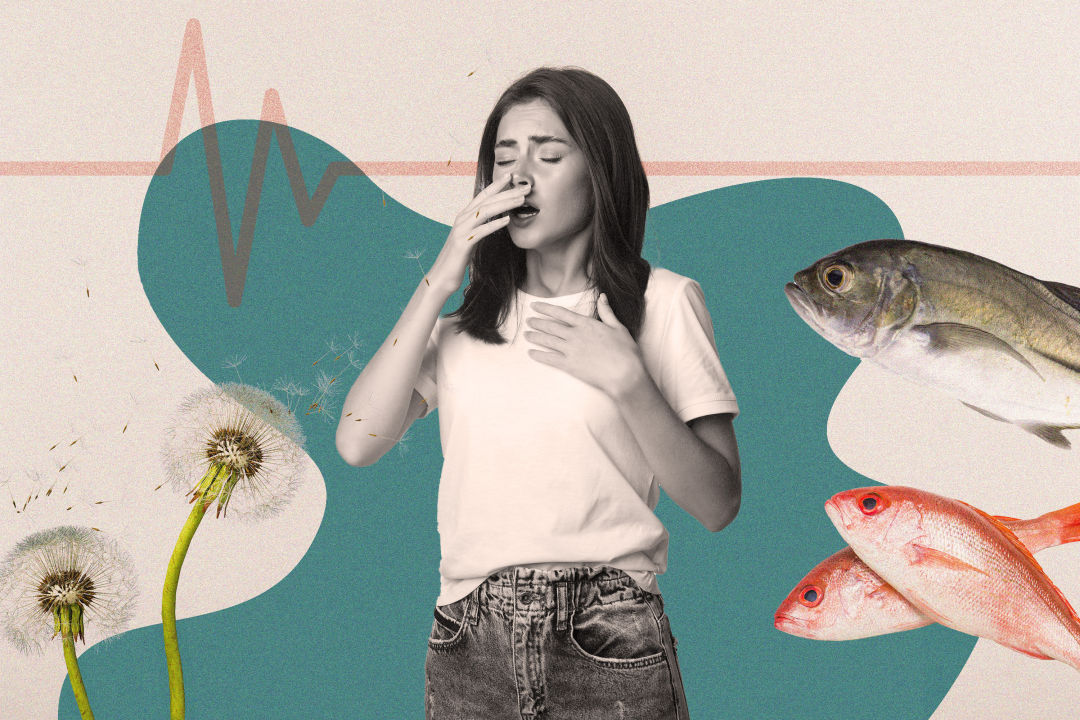'Am I Dying Or Are Red Tide and Pollen Making Me Miserable?'

Image: Kari Perrin
If you’ve felt miserable being outside these past few weeks, you’re not alone. This year’s combination of red tide and oak pollen is something awful. Everybody is either wheezing, coughing, congested, has a scratchy throat and irritated eyes or some unfortunate mix of them all.
“I've seen so many patients in the last few weeks that have felt really bad,” says Dr. Alicia Alvarez, an allergist and immunologist at Sarasota Memorial Hospital. “To have such a large red tide bloom at the same time of year as the peak of pollen season is not normal.” Alvarez is especially concerned for our elderly population here, who have respiratory comorbidities as they are particularly susceptible to negative effects of pollen allergens and red tide irritants.
And red tide and pollen combined can exacerbate the symptoms of the other. If your sinuses are already inflamed from all the pollen in the air, then the red tide aerosols coming off the water are going to find it even easier to get into your system and irritate you. We are also still learning of all the long term health consequences of red tide exposure.
It’s a crying shame that we can’t enjoy this last bit of nice weather on the beach before the oppressive summer heat arrives because of that 100-square-mile red tide bloom coating the Gulf of Mexico.
But are there ways to mitigate or even prevent these nasty symptoms so that we can still have fun this spring break? Well, the best way to stop the intensity of red tide is to stop pumping harmful nutrients into our water in the first place. But until we do that, here are a handful of simple remedies recommended by local doctors that will help reduce the severity of of pollen and red tide.
Control Oak Pollen Symptoms
Dr. Jennifer Fergeson, an allergy and immunology specialist at Windom Allergy, says you can reduce the severity of red tide symptoms by first controlling your allergy response to oak pollen. “Controlling oak pollen symptoms will really benefit anything thing you might experience in regards to all that red tide floating in the air,” she says. “Even if you get a virus, controlling your allergies will make that cold be less of any issue.”
You can fight pollen with over-the-counter antihistamines, but because red tide is an irritant and not an allergen, no medicine will directly help.
Use a Neti Pot
Don’t let those scaremongering media stories about brain-eating amoebas scare you. As long as you as you use filtered water and boil it, you don’t have to worry. Neti pots and saline nasal sprays can make a positive difference in your health.
“Red tide toxins and pollen are aerosolized, airborne and microscopic,” says Alvarez. “A neti pot, or saline spray, can deep clean your nose and at least get everything out of the nose as much as possible.”
Fergeson agrees. “Yes, neti pots work 100 percent,” she says. “When you are inhaling whatever’s in the air, whether it be pollen or irritants, they stick around in your nose. If you use a neti pot, you’re literally rinsing out whatever could be causing your symptoms. It should help.”
Keep Your Windows and Doors Closed
It’s tough to keep your windows shut with such nice weather, but the best thing you can do is close up your house. “We don’t have too many great options other avoidance, which is not great when you’re trying to enjoy life at the beach,” says Alvarez. “Keep your windows closed and use the AC when you’re in the car. The will help keep out pollen and red tide.”
Wear a Mask and Sunglasses
Wearing masks in Florida is a fashion faux pas to some, but if you're willing to deal with the partisan fallout, you will certainly suffer less.
“If you do go outside, wearing a mask can help reduce both allergen and red tide irritants,” says Alvarez. “One study found that it reduced up to 90 percent of red tide aerosols. But be wary of the tan lines.” She says that wearing sunglasses can also help with eye irritation.
Sorry, Honey Probably Won't Help
There are lots of claims that eating raw local honey can help fight allergies, but there is no scientific proof corroborating that claim as of yet.
“Some of my patients feel like it does it help,” says Fergeson, “And if it works for you, that’s fine. But I don’t really recommend it because it’s not really supported by any bodies of medical evidence.”
But hey, honey tastes good and doesn’t hurt, so knock yourself out!
Wash Your Clothes, Hair and Body
Pollen is sticky, so just because you’re inside it doesn’t mean that you’re home alone. “At the end of the day, shower and wash your hair to get all the pollen off before you go to bed," Alvarez says.
Get Your Local Representatives to Fight Red Tide
So far, the most effective way to to stop red tide symptoms is to fight the severity of red tide blooms. That means reducing the amount of nutrients that make their way into our waters. In order to do that, we need an engaged public and good government. Let’s do our best to make this the last worst red tide bloom in our area.



